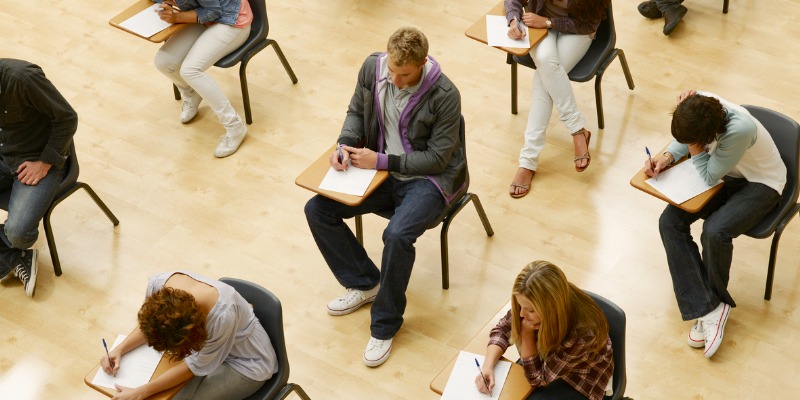Plummeting math scores should trigger change in Canadian classrooms

It’s time to rethink “progressive” teaching trends, which have gripped Canadian classrooms and coincided with a sharp decline in student math and reading performance.
According to new results from the Programme for International Student Assessment (PISA)—a standardized test of 15-year-olds across the globe in reading, science and math—Canadian math scores have declined precipitously over the last 20 years. One-in-five Canadian students is performing at the lowest level in math, and immigrant students are performing better than their Canadian-born peers. And while 78 per cent of Canadian 15-year-olds are at or above a baseline of math proficiency, Canada’s downward trend over time is troubling. The director for education and skills at the OECD (which created PISA testing) said Canadian student results are a cause for concern, as the changing world requires strong math skills now more than ever.
Clearly, school closures and other government COVID policies caused learning disruptions and hurt student achievement. But while a significant portion of student decline occurred during the COVID years when governments closed schools, Canada’s downward trend in math performance precedes the pandemic. Since 2003, math scores have tumbled.
If we don’t offer students the foundational building blocks in math—that is, clear, direct instruction from teachers—they’ll have trouble moving on to more complex math problems. Students fall behind when we fail to help them master essential skills—they should memorize basic math facts such as multiplication tables, and learn the standard algorithms for addition, subtraction, multiplication and division.
If students do not acquire these basic skills, they will struggle, particularly when they encounter more complex math problems. Just as a pianist must practise scales before playing one of Beethoven’s sonatas, students must commit basic math facts to memory before trying to solve advanced algebraic equations.
Moreover, the latest PISA math scores may be a canary in the coal mine for other subject areas.
Canadian student performance has also declined in reading. This comes as little surprise. The science of reading shows that phonics instruction is vastly superior to the widely used but ineffective “three-cueing” approach where students guess the meaning of unfamiliar words based on context. If we aren’t teaching students the science of reading—phonics—in many cases they won’t be able to decode words and read with confidence. Students must learn how to sound out individual letters and phrases, which requires a significant amount of focused instruction by competent classroom teachers.
Research also shows that students benefit from knowledge-rich classroom environments. For example, there’s a strong causal relationship between background knowledge and reading comprehension. This means teachers should do everything they can to help students acquire subject-specific content knowledge.
Finally, if students don’t know key names and dates in history class, they can’t contextualize those events and think critically about their implications today. For example, no one can give an informed opinion about whether schools and other buildings should be named after Sir John A. Macdonald unless they know some basic facts about his life and the historical context of his time as prime minister.
One of the best things we can do is reject, once and for all, the notion that “inquiry learning” is the best way for students to learn. Teachers should reclaim their proper role as subject-matter experts who take charge of the learning process. Most students do not benefit when teachers turn themselves into mere guides on the side.
If we want to reverse Canada’s long-term academic decline, we must improve the quality of instruction in schools. Otherwise, we’ll be sorely disappointed by the next round of PISA results, and continue to shortchange our students and limit their ability to compete after graduation.
Authors:
Subscribe to the Fraser Institute
Get the latest news from the Fraser Institute on the latest research studies, news and events.


